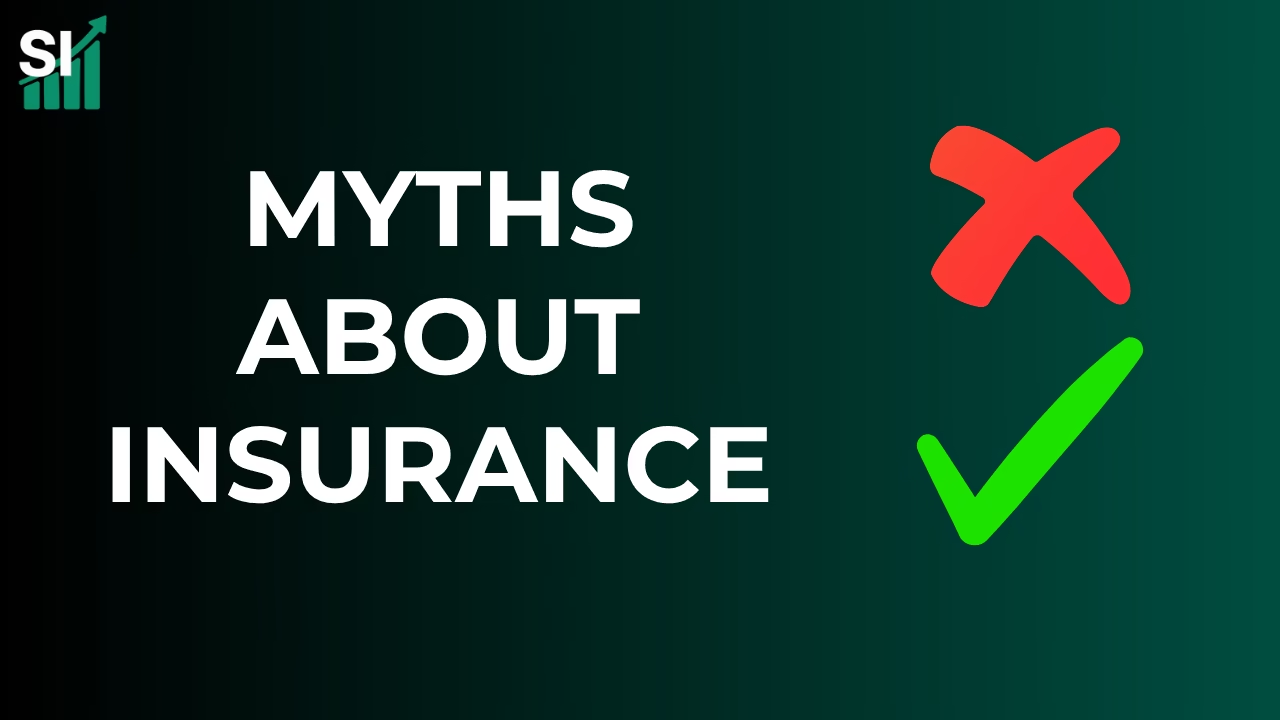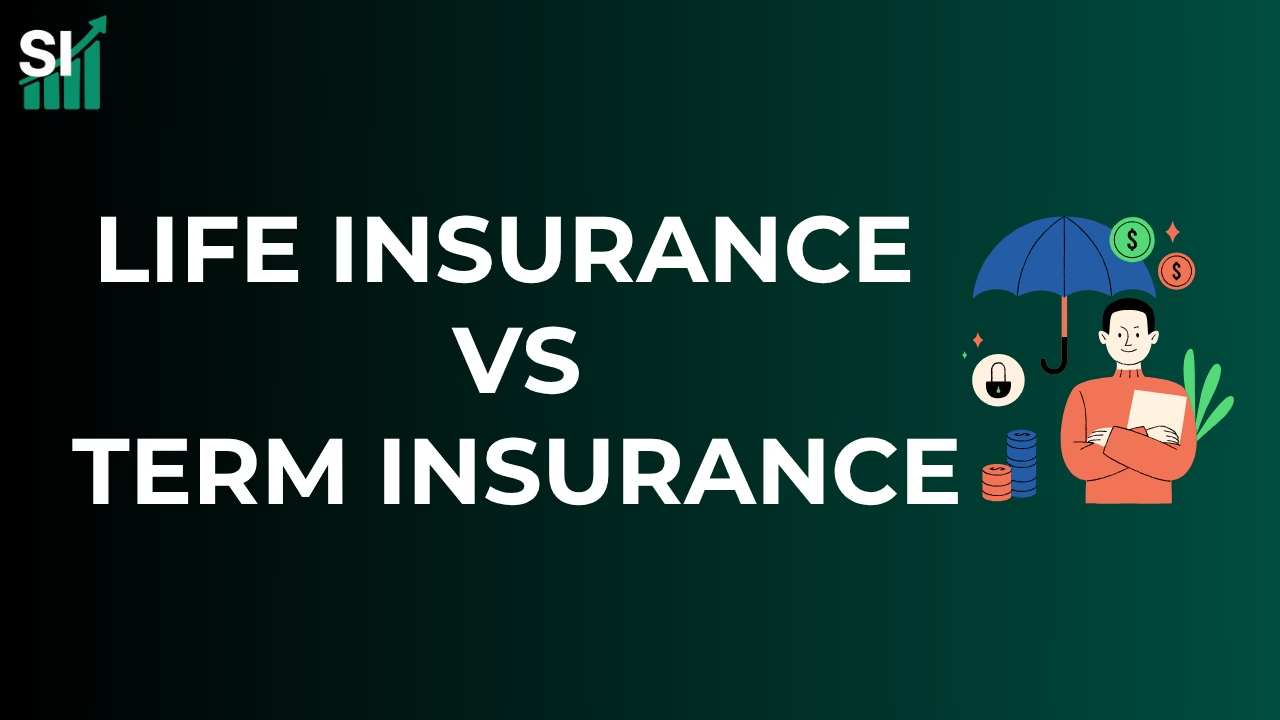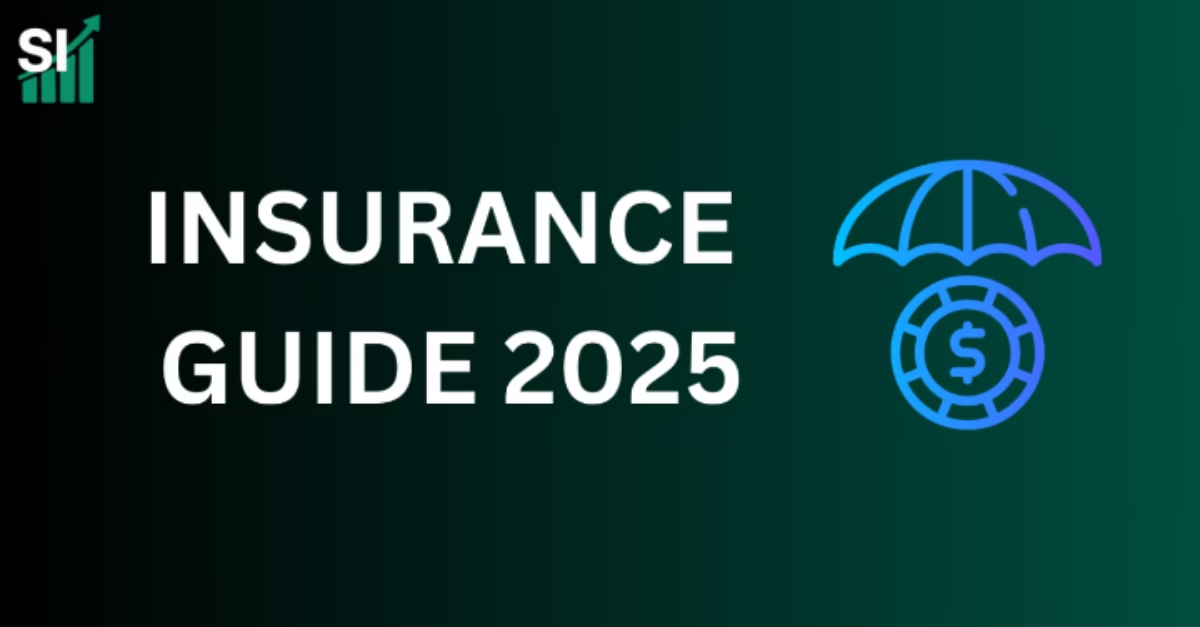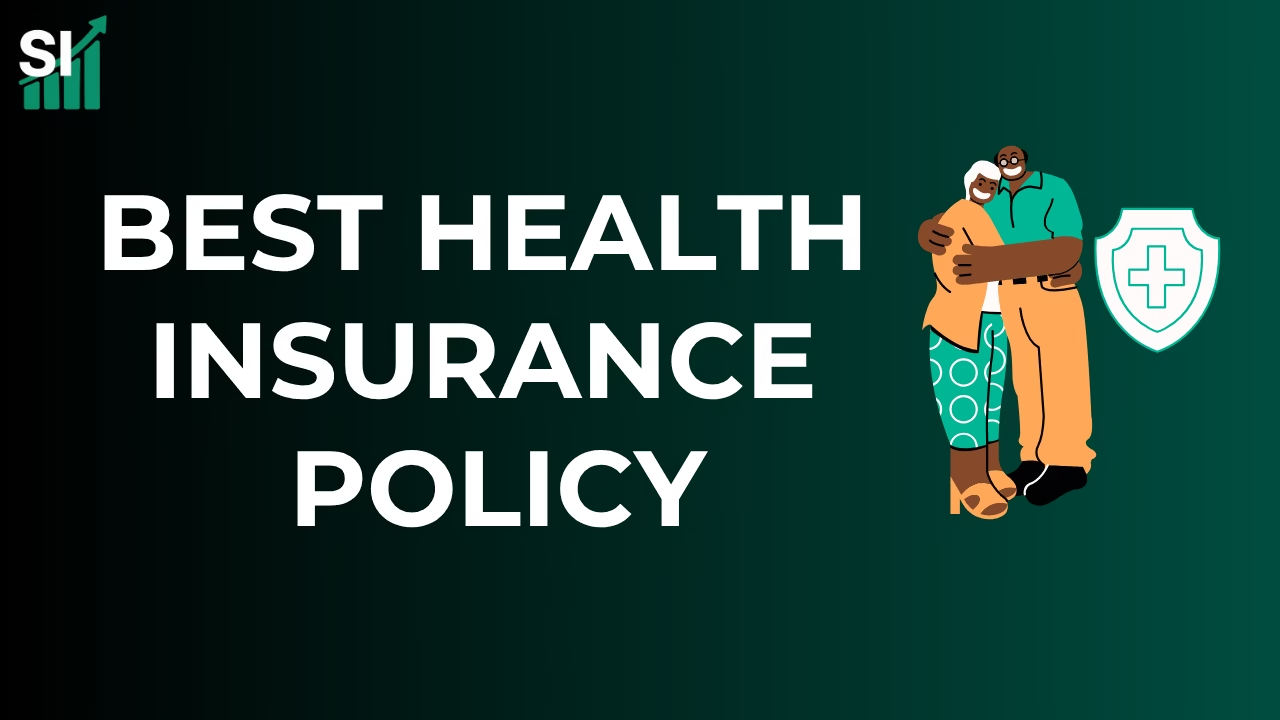Introduction to Insurance Myths
One prevalent myth is that insurance is an unnecessary expense and provides limited value. Many people believe that if they have not claimed insurance in years, it is a waste of money. This narrative undermines the fundamental purpose of insurance, which is to provide a safety net during unpredictable events. Additionally, there is a belief that insurance is exclusively for the wealthy, further alienating those who could benefit from such protection. Such notions can deter individuals from investing in essential insurance plans, leaving them vulnerable to financial loss.
Insurance plays a vital role in financial planning, yet misconceptions surrounding it can significantly alter individuals’ perceptions and experiences. In India, numerous myths about insurance remain prevalent, leading to a misunderstanding of its nature and benefits. These misconceptions can stem from cultural beliefs, lack of information, or poor communication about insurance products. Consequently, failing to distinguish between myth and reality can lead to suboptimal decisions that affect financial security.
It is also important to consider the array of insurance products available. From health and life insurance to vehicle and property coverage, each serves a unique purpose in safeguarding against potential risks. Misunderstanding these products can impede individuals from making informed choices. For example, many assume that health insurance will fully cover all medical expenses without recognizing policy limits or exclusions. Clarifying these misconceptions is crucial to ensuring that individuals make decisions that align with their needs and financial goals.
In exploring these topics further, it is essential to acknowledge that understanding insurance products is key to achieving adequate financial protection. By dispelling myths surrounding insurance in India, individuals can operate with better awareness, ensuring they select the right policies that serve their specific requirements.
Topics of Discussion
General Insurance Myths
General insurance is often surrounded by skepticism and misconceptions, leading to a multitude of myths that can misinform policyholders. One prevalent myth is that insurance primarily serves as a tax-saving tool. While it is true that certain insurance premiums qualify for tax deductions under Section 80C of the Income Tax Act, this view significantly undermines the primary function of general insurance, which is to provide financial protection against unexpected events. Reliance on insurance solely for tax benefits may result in inadequate coverage, leaving individuals vulnerable.
Another common belief is that loyalty to an insurer guarantees better service and claims settlement. While long-term relationships with an insurer may provide certain benefits, such as discounts or enhanced coverage options, the reality is that insurers prioritize the risk assessment of each policyholder. Relying solely on loyalty can lead to complacency in assessing the adequacy of coverage and the insurer’s prominence in the marketplace. It is crucial for consumers to compare policies periodically and select the one that best meets their evolving needs.
The claims process is also widely misunderstood, with many individuals believing that claiming insurance is an arduous and lengthy process. While the claims process can be challenging, many insurers are actively working to streamline the experience. A lack of documentation, misunderstanding of policy terms, or inefficiencies in communication can contribute to delays. However, insured parties can facilitate the process by maintaining proper records and understanding their policy’s terms and conditions. By debunking these myths, potential policyholders can make informed decisions regarding general insurance, ensuring they receive the protection they need without unnecessary complications.
Myths About Life Insurance
Life insurance in India is surrounded by numerous misconceptions, leading to misunderstandings about its true value and necessity. One prevalent myth is that life insurance is only essential for married individuals or those with dependents. This belief can be misleading, as life insurance serves as a crucial financial safety net for anyone, regardless of marital status. Young, single individuals may also bear financial responsibilities, such as student loans or personal debts, making life insurance a smart investment to ensure their obligations are met even in unforeseen circumstances.
Another common misconception is that people should only think about life insurance as they age or when they have families. In reality, securing a life insurance policy at a young age can be highly advantageous. Premiums tend to be lower for younger applicants, and acquiring a policy early can avoid future health issues that might complicate or increase costs associated with insurance. It allows for a head start on a secure financial future, making it a wise choice for financially savvy individuals.
Moreover, the limitations of employer-provided life insurance are often underestimated. Many believe that their employer’s coverage is sufficient. However, such policies often provide minimal coverage that may not adequately meet one’s financial needs, especially in cases of long-term disabilities or loss of life. It’s essential to consider personal life insurance policies to ensure that one’s family would be financially secure in the event of an unfortunate occurrence.
Lastly, the idea that term insurance is a waste of money is a significant myth that needs addressing. While term insurance may not provide any return on investment like traditional whole life policies, it offers essential benefits such as affordability and straightforward coverage. Term life insurance can easily be tailored to cover specific periods, ensuring that loved ones are protected during significant financial commitments. Thus, dispelling these myths about life insurance offers a clearer understanding of its value in securing one’s financial future.
Life Insurance vs Term Insurance: 7 Practical & Trustworthy Differences
Compare life insurance vs term insurance in 2025. Learn 7 key differences in cost, coverage, and benefits to pick the right policy for you.
Read More →Insurance : Life, Health, and Critical Illness: Your Guide to Financial Protection
Insurance like life and health cover protects your family from financial stress in tough times. Pick the right plan for peace of mind.
Read More →Understanding Health Insurance Myths
Health insurance plays a crucial role in safeguarding individuals from unexpected medical expenses. However, numerous misconceptions persist regarding health insurance policies in India that may lead to misinformed decisions. One prevalent myth suggests that all medical expenses are covered under a health insurance plan. In reality, while health insurance policies provide substantial coverage for hospitalization and certain treatments, they often come with exclusions and limitations. For instance, pre-existing conditions may not be covered immediately, and certain treatments may require specific waiting periods before claims can be made.
Another common misconception is the belief that cheaper policies offer better value. While affordability is an important consideration, the cheapest policies may not provide sufficient coverage or might have hidden clauses that limit benefits. It’s essential for individuals to thoroughly evaluate the terms and conditions of various policies rather than solely focusing on the price. Understanding policy features, network hospitals, and the extent of coverage is crucial in selecting an appropriate health insurance plan that aligns with one’s health needs.
Moreover, there is a notable misunderstanding surrounding hospitalization claims versus day-care treatments. Many individuals assume that hospital admission is the only scenario where health insurance applies. However, numerous plans also cover day-care treatments, which do not require a full 24-hour hospital stay. This distinction is vital, as some medical procedures, such as cataract surgeries or arthroscopic surgeries, fall under this category and can still incur substantial costs.
To make informed choices about health insurance, it is imperative to dispel these myths and understand the nuances of various policies. Being well-informed will empower individuals to select the right health insurance that enhances their financial security in the face of medical emergencies.
Car Insurance Myths Explained
Car insurance is a crucial aspect of vehicle ownership, yet several misconceptions can cloud the decision-making process when purchasing a policy. One prevalent myth is that third-party insurance offers comprehensive protection. In reality, third-party insurance only covers injuries and damages to another party involved in an accident, leaving the policyholder vulnerable to losses regarding their vehicle and medical costs. It is important for car owners to recognize that while third-party insurance is mandatory in India, it is fundamentally limited in scope and does not provide a safety net for personal damages or repairs.
Another common misconception involves the belief that comprehensive car insurance covers all types of incidents. Although comprehensive coverage does include damages resulting from theft, natural disasters, and vandalism, it does not cover every scenario; for instance, regular wear and tear, or damages caused by driving under the influence are typically excluded. Therefore, understanding the nuances of different policy types is essential for making informed choices tailored to individual needs.
Furthermore, many people assume that car insurance premiums are fixed and unchangeable. However, this is a myth that deserves clarification. Several factors influence the premium, including the driver’s age, driving history, vehicle make and model, and even geographical location. Policyholders can take proactive steps to reduce their premiums, such as maintaining a clean driving record, opting for higher deductibles, or availing of no-claim discounts. By engaging in safe driving practices and being discerning in their choice of coverage, individuals can effectively lower their insurance costs.
Ultimately, debunking these car insurance myths empowers consumers to make well-informed decisions. An accurate understanding of the various coverage options available ensures that policyholders are adequately protected and can choose the right car insurance policy suited to their unique circumstances.
The Impact of Misinformation
Misinformation surrounding insurance in India can significantly hinder individuals’ financial planning and overall security. Many people rely on popular beliefs and anecdotal evidence rather than factual information when making important decisions about insurance products. This widespread misunderstanding can lead to inadequate coverage, leaving individuals exposed to financial crises during unforeseen circumstances.
One common myth is that health insurance is only necessary for the elderly. This assumption may prompt younger individuals and families to forego coverage, leaving them vulnerable to high medical expenses. For instance, a young family might choose to avoid purchasing a health insurance policy, believing that they are healthy and unlikely to require medical attention. When an unexpected health issue arises, the resulting healthcare costs can lead to substantial financial strain. Without the safety net that health insurance provides, individuals may find themselves in dire circumstances.
Another misconception is that all insurance policies are similar, which can cause potential policyholders to choose an inadequate plan that does not meet their specific needs. For example, someone seeking auto insurance might select the cheapest policy without fully understanding the coverage limitations. In the event of an accident, they could face significant out-of-pocket expenses due to the insufficient protection of their chosen plan.
These examples illustrate how incorrect assumptions about insurance can lead to severe financial ramifications. Proper education and credible information about insurance products are crucial for making informed decisions. Individuals are encouraged to seek professional advice and thoroughly research the various options available. By doing so, they can better navigate the complexities of insurance and protect themselves and their families against financial burdens that may arise from misinformation.
Tips for Choosing the Right Insurance
Selecting the right insurance policy can be a daunting task, especially in an environment where misinformation abounds. To navigate this process effectively, it is crucial to first assess your coverage needs accurately. Begin by identifying the risks specific to your situation, which will help in determining the type and amount of insurance required. For instance, individuals with dependents may prioritize life insurance, while homeowners should focus on property insurance. Understanding your unique needs lays a solid foundation for making informed decisions.
Once you have a clear idea of what you require, it is advisable to compare quotes from various insurers. Many online platforms facilitate this process, allowing you to analyze different policies side by side. When reviewing quotes, pay attention not just to the premium amount, but also to the coverage limits and exclusions. A cheaper plan may seem appealing, but it could lack essential coverage that might prove costly in the long run. Additionally, consider the policy features and benefits that may be relevant to your specific scenario, such as riders for critical illness or accidental death.
Another vital aspect to consider is the financial stability of the insurance company. Insurers with solid financial ratings are more likely to fulfill their claims obligations, ensuring peace of mind. Review ratings from independent agencies to gauge the company’s reliability. Alongside financial health, customer service reputation should also weigh heavily in your decision-making. Read reviews and testimonials to ascertain how well an insurer responds to queries and handles claims. A company that prioritizes customer satisfaction is oftentimes a better choice, as poor service can lead to frustration during critical times.
By following these steps, you will be better equipped to choose an insurance policy that aligns with your needs and priorities, ultimately steering clear of common myths that can mislead your decisions.
The Role of Regulatory Bodies
The insurance sector in India operates under the vigilant oversight of regulatory bodies, the most prominent of which is the Insurance Regulatory and Development Authority of India (IRDAI). Established to ensure the orderly growth of the insurance industry while protecting the interests of policyholders, the IRDAI plays a crucial role in maintaining transparency and reliability in insurance practices. By enforcing guidelines and regulations, the authority fosters a trustworthy environment for consumers navigating the complexities of insurance products.
One of the significant functions of the IRDAI is to improve consumer awareness and educate policyholders about their rights. This knowledge empowers consumers to make informed decisions when selecting insurance policies, fostering a better understanding of the products available in the market. Through various initiatives, including public awareness campaigns, the IRDAI promotes essential information like claim settlement ratios. Understanding this ratio helps consumers gauge an insurer’s reliability and efficiency in handling claims, thus encouraging informed purchasing choices.
Moreover, the IRDAI also serves as a platform for addressing grievances, allowing consumers to voice their concerns regarding insurance providers. This aspect of regulatory oversight acts as a safety net against misinformation and unethical practices in the industry. By providing a structured mechanism for filing complaints and resolving disputes, the authority ensures that consumers have recourse in the face of dissatisfaction or unfair treatment by insurers.
In conclusion, the regulatory framework established by bodies like the IRDAI significantly contributes to the integrity of the insurance industry in India. By supporting consumer education, maintaining fair practices, and facilitating grievance redressal, these organizations build a foundation of trust, ultimately enhancing the overall experience of policyholders navigating the insurance landscape.
Conclusion: Making Informed Decisions
Throughout this blog post, we have addressed several prevalent myths surrounding insurance in India, ultimately underscoring the significance of informed decision-making in securing a reliable financial future. Understanding the realities versus misconceptions related to insurance is crucial, as misinformation can lead to inadequate coverage or unsuitable policy selection.
One of the key insights is the necessity of recognizing the purpose of insurance as a financial safety net, rather than merely a cost. By debunking myths such as the belief that insurance is only for the wealthy, we can emphasize that various insurance products cater to diverse income levels and personal circumstances. This understanding empowers individuals from all backgrounds to take proactive steps toward securing their assets, health, and loved ones.
Moreover, the importance of continuous education cannot be overstated. As the insurance landscape evolves with new products and regulatory changes, staying informed about these developments ensures that policyholders can make the best choices suited to their needs. Engaging with reliable sources, attending workshops, or participating in webinars can expose individuals to valuable insights, further strengthening their financial acumen.
Lastly, consulting with insurance professionals is a prudent approach that can help demystify complex policies and provide tailored recommendations. Experts in the field can illuminate the nuances of various coverage options, enabling individuals to challenge misconceptions and make sound choices based on their unique situations.
In closing, it is imperative that all individuals take charge of their insurance decisions. By challenging prevailing myths, pursuing knowledge, and seeking professional guidance, one can build a solid foundation for financial security and peace of mind. Making informed decisions today will undoubtedly contribute to a more secure tomorrow.
Further Reading
Health Insurance Policy in 2025 : 7 Smart Tips to Choose the Best
Find 7 proven tips to choose the right health insurance in 2025. Compare plans, coverage, and costs for smarter health security.
Read More →



